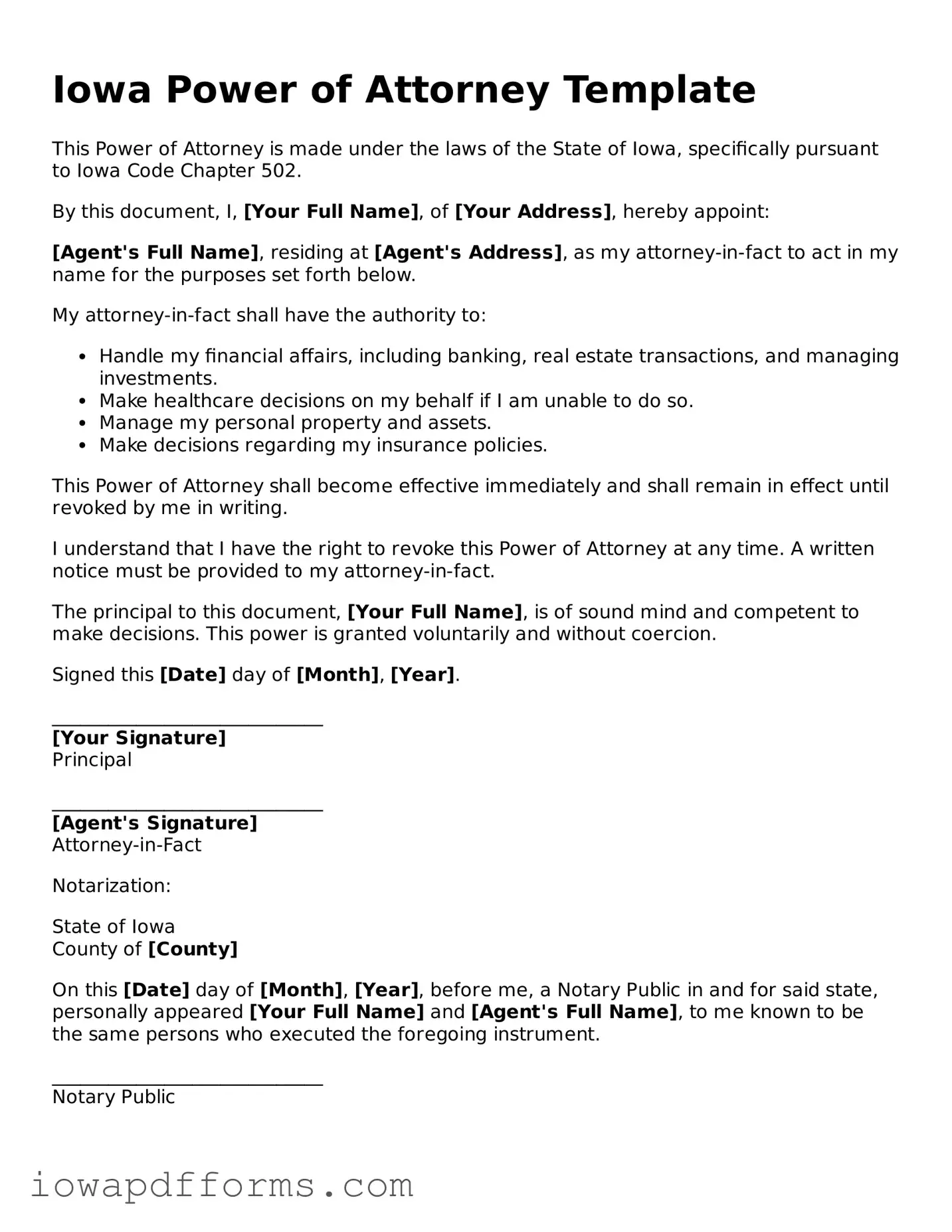Blank Power of Attorney Form for the State of Iowa
A Power of Attorney (POA) form in Iowa allows an individual to grant another person the authority to make decisions on their behalf. This legal document can cover a range of responsibilities, from managing finances to making healthcare choices. Understanding the nuances of the Iowa Power of Attorney form is essential for ensuring that your wishes are respected when you are unable to communicate them yourself.
Fill Out This Document Now

Blank Power of Attorney Form for the State of Iowa
Fill Out This Document Now

Fill Out This Document Now
or
Free Power of Attorney
Fast and easy form completion
Edit, save, download — complete Power of Attorney online today.